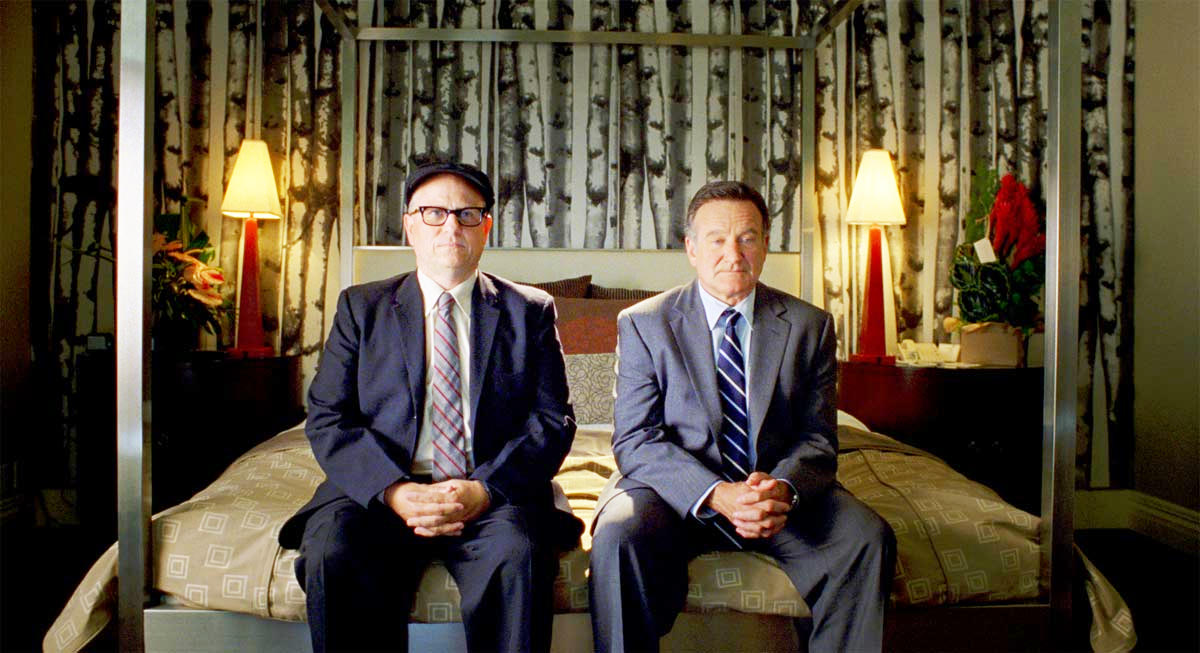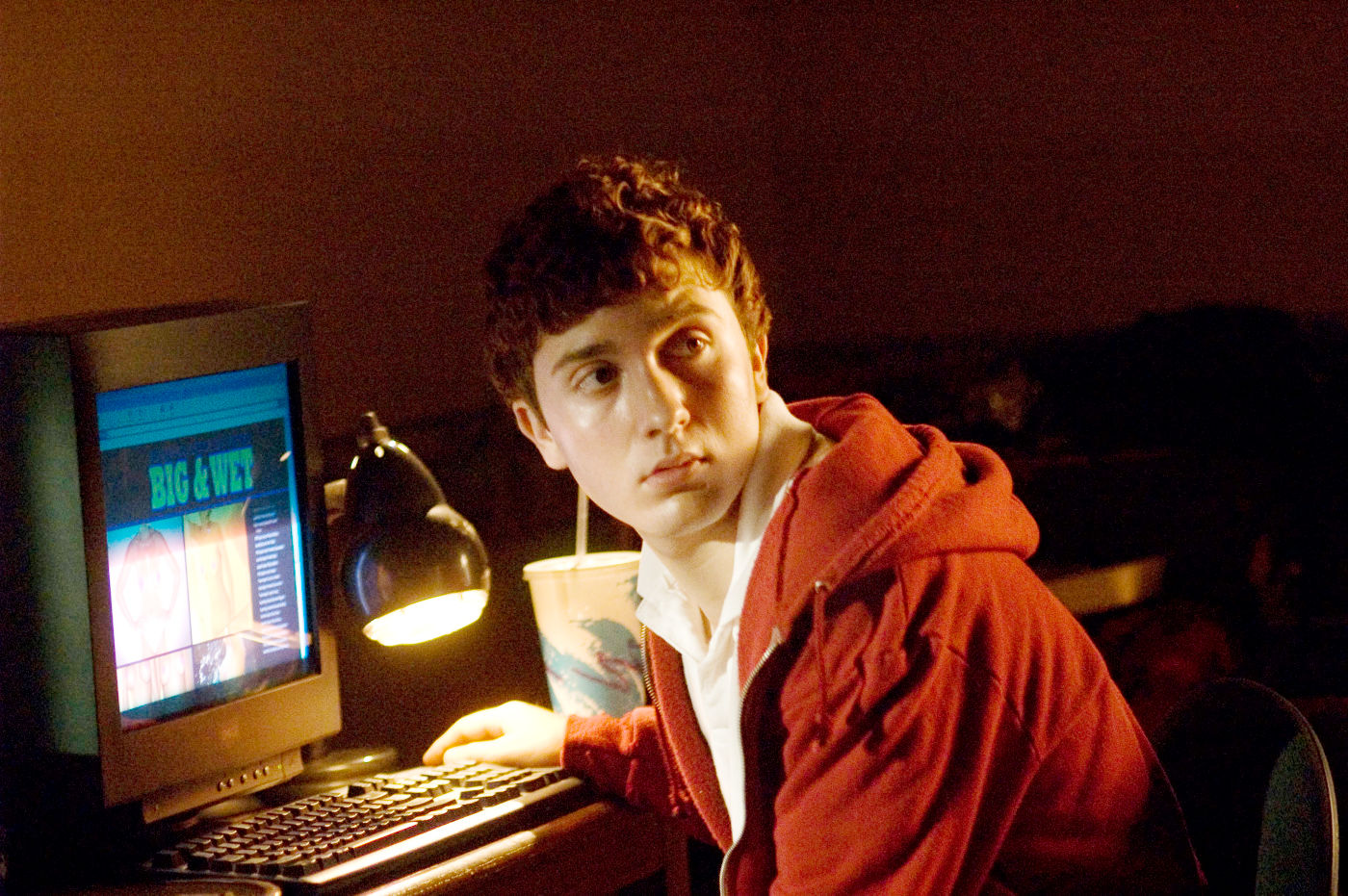
Of the two, it’s probably more surprising — and disappointing — that Mike Judge’s Extract turned out so pedestrian. As most everyone knows, Office Space is a certifiable classic, and however you feel about Beavis & Butthead, the basically straight-to-video Idiocracy was reasonably clever about bringing that duo’s schtick to its logical endpoint. (Idiocracy is also uneven, but its highs — the opening, the Wal-Mart greeter gag, etc. — are much higher than those to be had here.) At any rate, perhaps because of the Idiocracy snafu — there was really no good reason for Fox to bury it like they did — Judge seems to be playing it far too safe here. Extract mostly just feels like leftover vignettes from King of the Hill scripts, perhaps ones that were slightly too risque for television.
It’s hard to put a finger on exactly what’s wrong here (as it always is with funny), but perhaps it’s this: Office Space is much-beloved because it’s involves situations that anyone who’s spent any amount of time in cubicle life (or, per Jennifer Aniston’s “flair,” in food service) could identify with. Ok, most of us have never pulled the Superman III con, but who hasn’t been tsk-tsked for lack-of-TPS cover sheets, or wanted to go yard on a hiccuping fax machine? The humor of Office Space revolved around the penny-ante frustrations of work life, like getting stuck in traffic or losing your stapler, and in that sense it feels — almost — universal.
I had assumed going in that Extract would be the Office Space of the factory floor, but it isn’t. For one, it mainly revolves around the trials and tribulations of Jason Bateman’s factory owner — a small businessman, basically — and all the folks on the floor (including Judge himself) are mostly secondary characters, however sympathetically drawn. But, more to the point, Extract doesn’t really rely on workday nuisances for its humor like Office Space. Instead, it revolves around increasingly outlandish situations like, say, sorta accidentally buying your wife a sweet but lunk-headed gigolo (Dustin Milligan) while zonked out on ketamine. I can’t say I’ve ever worked in a factory, but I can’t imagine gigolos, femme fatale drifters (Mila Kunis), or even horrifying Rube Goldberg disasters resulting in testicular detachment play much of a day-to-day role in things.
And, divorced from that everyday humor that Judge does so well, Extract just feels episodic and throwaway. The funniest scene in the movie involves Bateman’s getting stoned out of his gourd with absolutely the wrong guy — let’s just say he’s slightly aggro — and even that goes on for too long. (Also, I missed Pineapple Express, but I get the sense that this very same joke was half the movie.) I didn’t mind throwing money at Extract in the end — after what happened to Idiocracy, Mike Judge probably deserves it. But I can’t really recommend the film either — there’s just not much there there.

The single-parent dad in question is Lance Clayton (Robin Williams), a failed writer laboring in (and loathing) obscurity as a poetry teacher at a private high school. In danger of losing both his job — nobody much cares about poetry anymore — and his surreptitious girlfriend Claire, the school’s art teacher (an appealing, if chirpy, Alexie Gilmore), Lance’s biggest problem these days is just trying to raise his really wayward son, Kyle (Daryl Sabara). Kyle is…well, Kyle is a douchebag, pure and simple. The kid has no redeeming qualities whatsoever — He terrorizes his father into submission on all manner of issues, and nobody can stand him, except for one long-suffering friend (Evan Martin) with his own problems at home. And that just about sums up Lance Clayton’s life, until an deadly (and embarrassing) accident — think David Carradine or Michael Hutchence — presents some horrible new opportunities…
The film’s big credit here is Robin Williams, who gives one of his better performances in recent years. To my mind, Williams can be hit-or-miss. He’s often excellent when he finds a role that balances comedy and drama (The World According to Garp, Dead Poet’s Society, The Fisher King, Good Will Hunting), but deteriorates rapidly if the script pushes him too far in either direction. (On one hand, abominations like Patch Adams or Mrs. Doubtfire; on the other, one-note performances like Insomnia and One Hour Photo.) Here, Goldthwait serves Williams well, and vice versa — The only thing that makes WGD work at all is Williams’ often surprisingly nuanced performance. (His reaction to “Parenting is the toughest job you’ll ever love” still makes me laugh every time I see the trailer.)
That being said, World’s Greatest Dad ends up being mostly a one-note film. (Part of the problem is the set-up: The movie is driven by a Big Lie, and so, just as you always end up waiting for the couple to get (back) together in a standard-issue rom-com, a lot of the time here is spent just waiting for the other shoe to drop.) I admired WGD‘s intentions — Get past the kink and the misanthropy, and the movie is an pretty timely riff on the blatant white-washing that often attends our public mourning rituals. But, in the end, it’s not particularly funny, and it beats its one dead horse so thoroughly that WGD loses steam well before its final act. Next time, Dad, cut to the chase.

